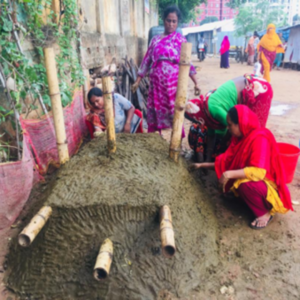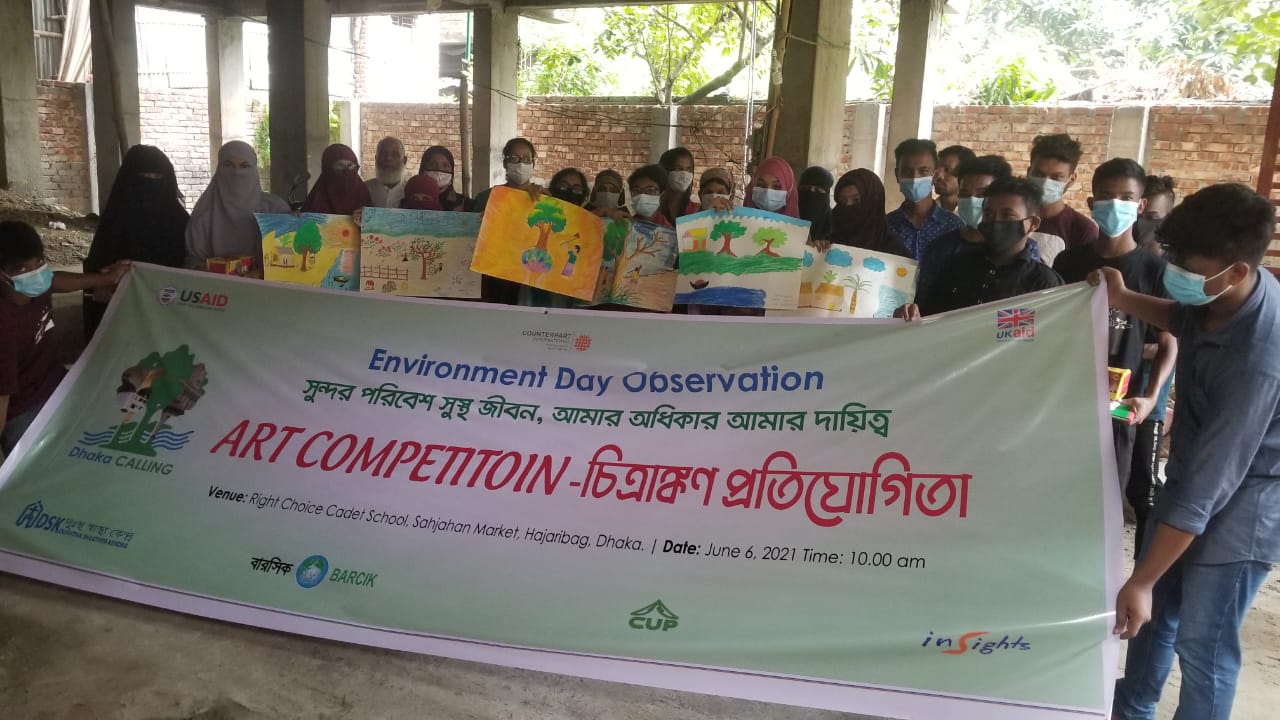
Day Observation
The Dhaka CALLING project has supported the CBOs and their federations to celebrate “the World Environment Day 2021” with the engagement of multi-stakeholders such as Govt. Officials, Environment experts, Accdemitioans, NGOs, Journalists, community people, activists, etc. Different striking activities were organized to celebrate the day, like (i) cleaning campaign; (ii) tree plantation program; (iii) demo rally; (iv) discussion session (v) art competition.
Clean Community Campaign
The DSK consortium organized ‘Clean Community Campaigns’ in the project areas. The events were envisioned, led and made success by the huge active participation of slum dwellers. The following engaging activities were conducted under the campaign:
- Cleaning the central drain
- Promoting the ‘Shobar Dhaka’app
- Transporting waste to a Secondary Transfer Station (STS)
- Spraying anti-mosquito chemicals
- Cleaning the yard
- Demo Rally with Slogan
- Discussion session
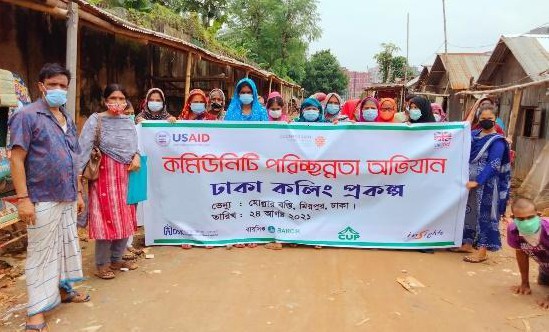
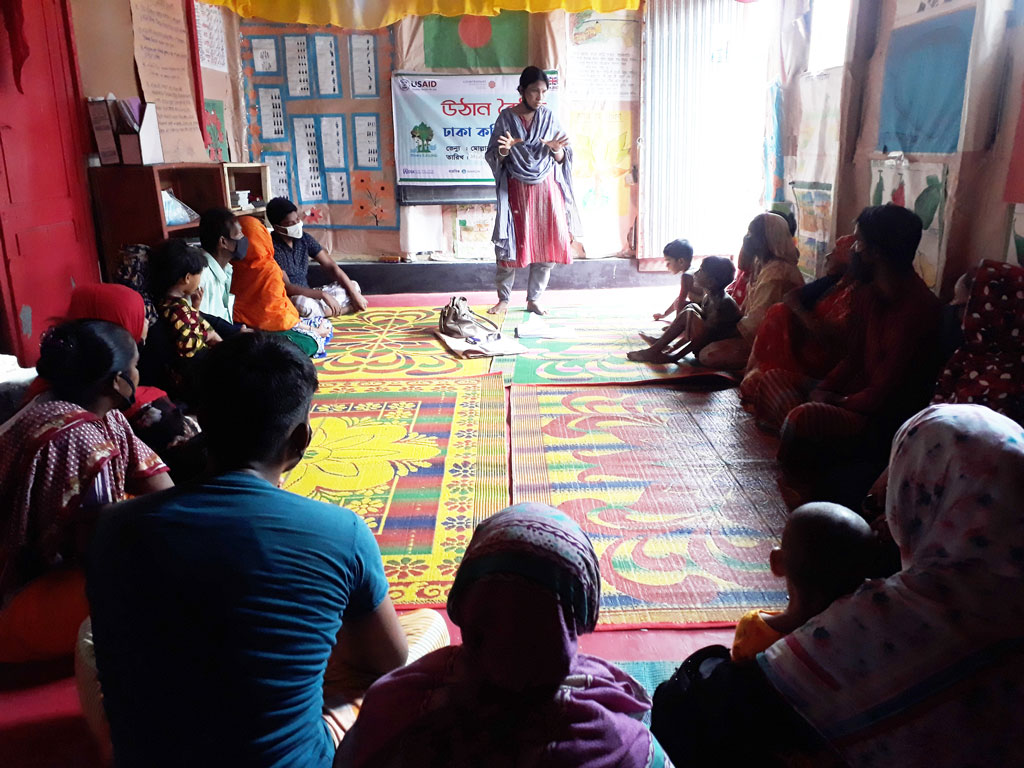
Courtyard Meeting
In order to make responsive urban citizens, the project conducted a number of courtyard meetings in its project areas. The objective of the event is to discuss and disseminate environmental messages among the slum residents to make them aware of their rights to have a pollution-free environment and to illustrate their role and responsibilities for keeping their surroundings clean to keep the environment pollution-free.
Audio-Visual awareness
Audio-Visual awareness clips have been developed by the project with the objective to portray the existing waste management situation of the targeted slum areas, the slum dwellers’ KAP on rights and responsibilities toward pollution-free clean and healthy environment. As an advocacy tool, these AV clips contribute to reminding duty bearers’ regarding their roles and action toward the slum environments.
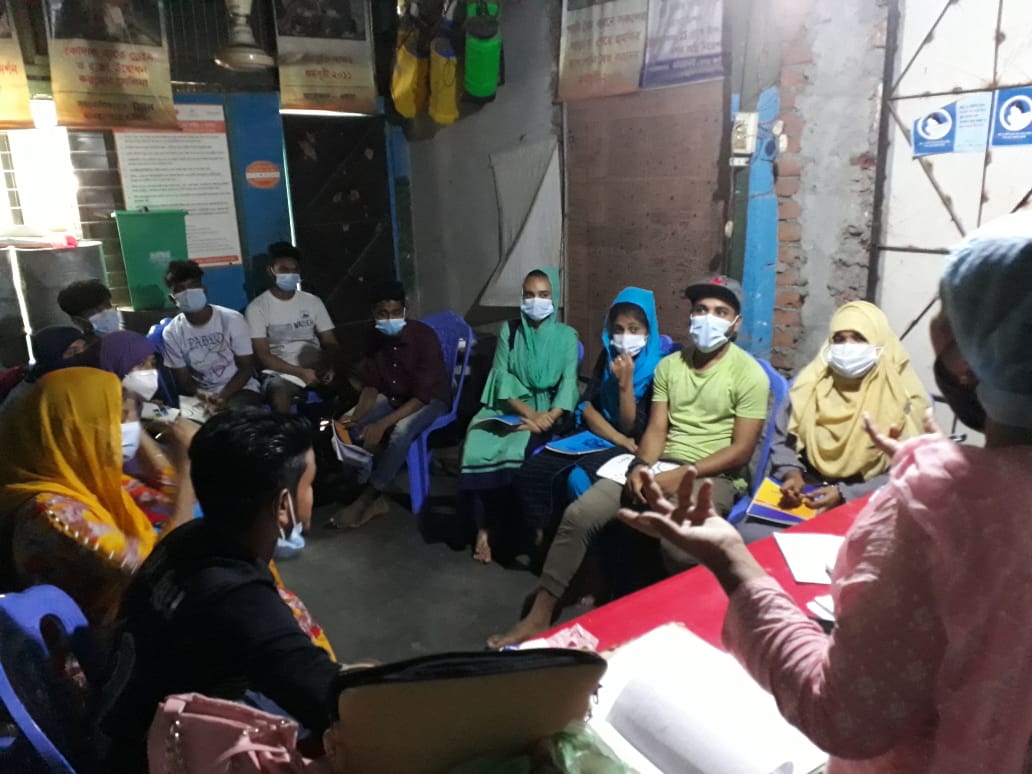
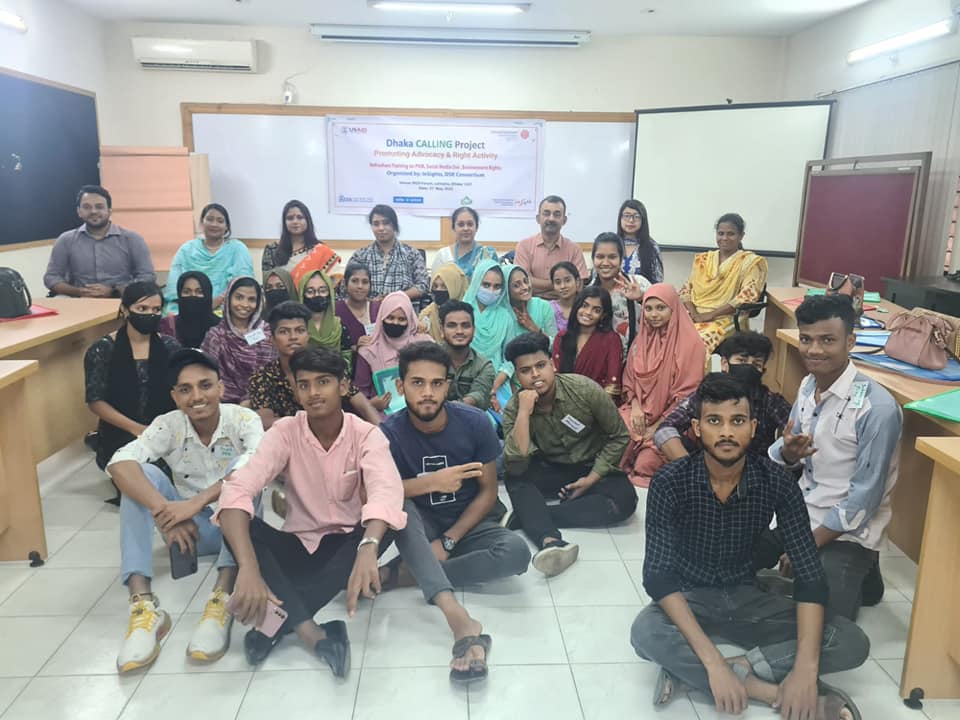
Training on Participatory Video Making
As per the project plan, 50 youth advocates have been extensively trained to develop their skills in participatory Video Making (PVM), use of social media for environmental campaigns, internet safety, and security as well as developing and sharing messages sensitive to gender diversity and inclusion.
Monthly meeting with Youth Advocacy Group (YAG)
According to the project plan, Dhaka CALLING project has formed four Youth Advocacy Groups with fifty (50) young girls and boys, in the project area. The project has conducted a number of meetings with these advocates to facilitate and motivate them for their active participation and involvement in advocacy events, including social media on prevailing environmental issues to drive the anti-pollution effort.
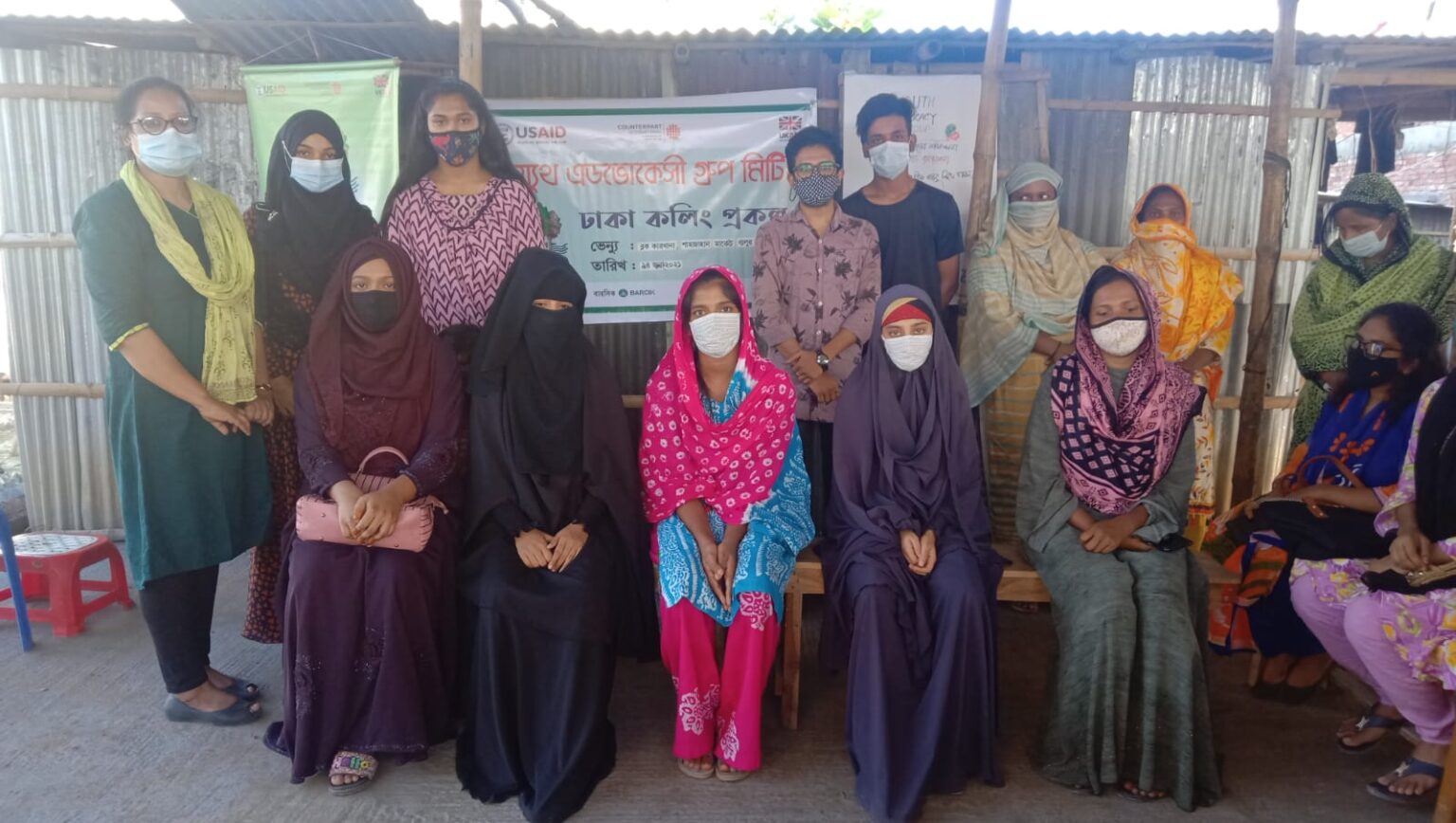
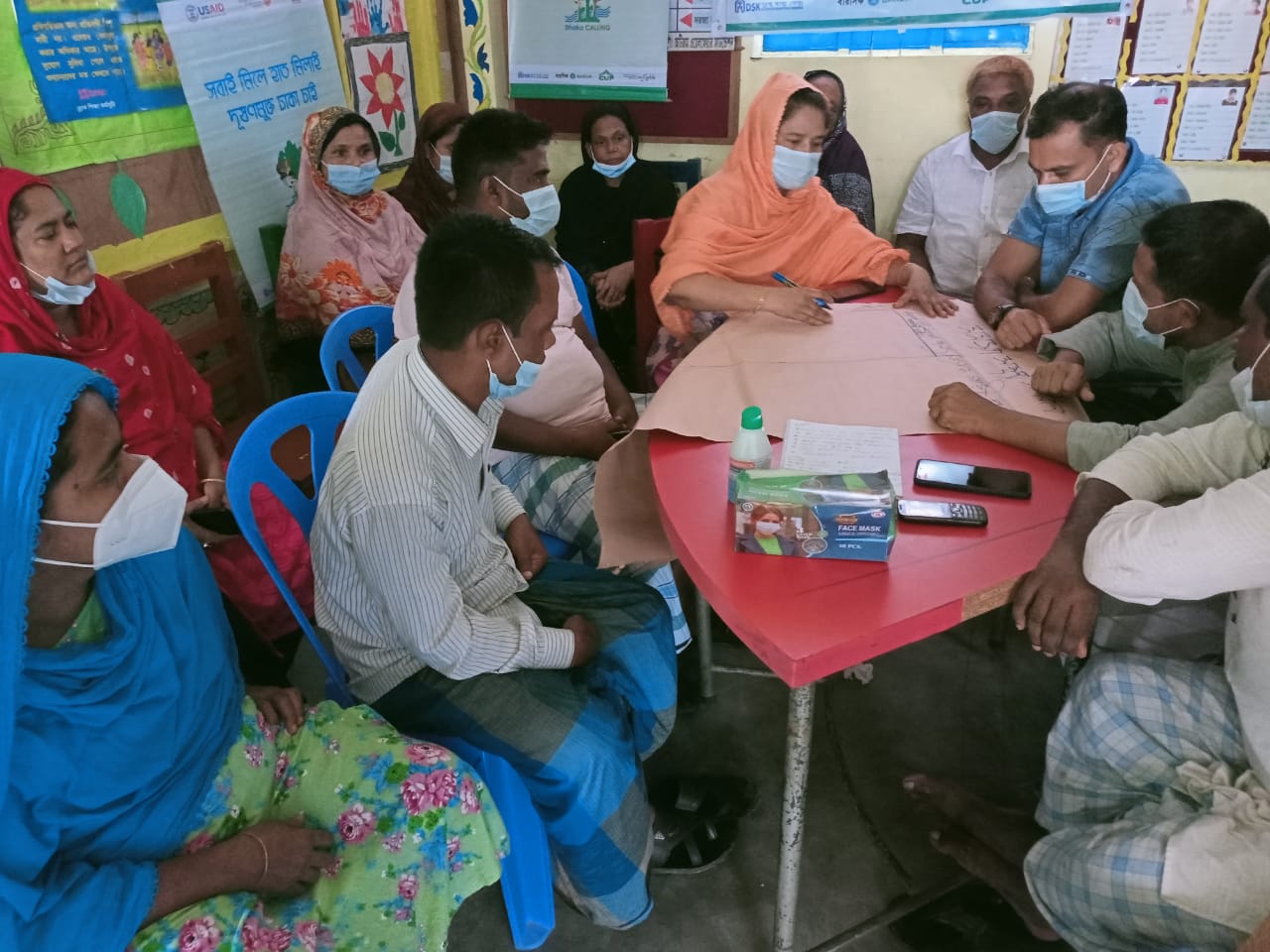
Exchange of knowledge and thoughts among CBOs and Federations
As per the project Plan, the project has conducted a series of knowledge and thoughts Exchange meetings with 4 CBOs and 3 federations members in the project areas. The main objective of these events was to discuss and find out the existing waste management and other environmental pollution-related problems and their root causes in their slum. These knowledge and Thoughts Exchange sessions also sketch out the action plan on how the dwellers can work to bring change in the improvement of livability in the slum, through advocacy with city service providers.
CBO members Training
Dhaka CALLING project creates awareness and builds capacity among the Community Based Organizations (CBOs) and federations on policies, rights, and responsibilities towards waste management and environmental pollution. These CBOs and federations will share the information and influence their community members to be responsive towards the identified laws and rules. Members from four CBOs from targeted four slums and three Federations were trained by organizing training sessions to familiarize members with the respective pollution-related laws and rules.
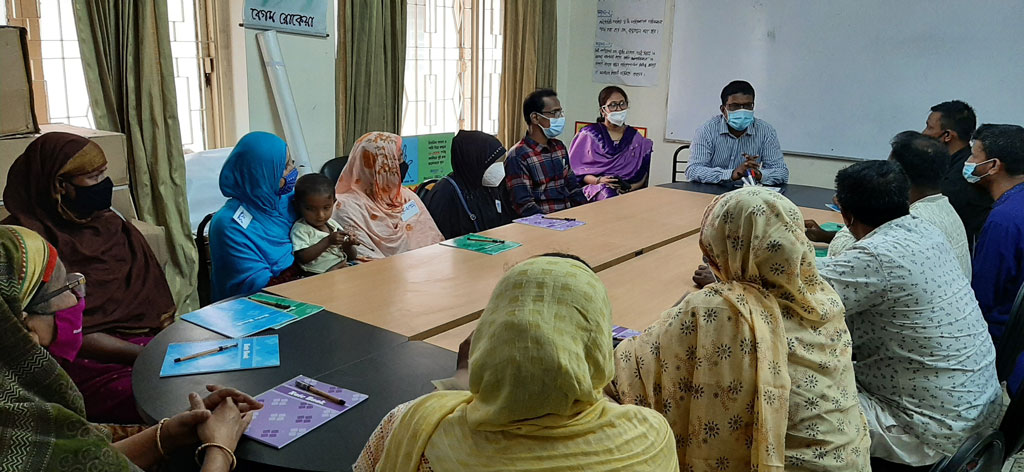
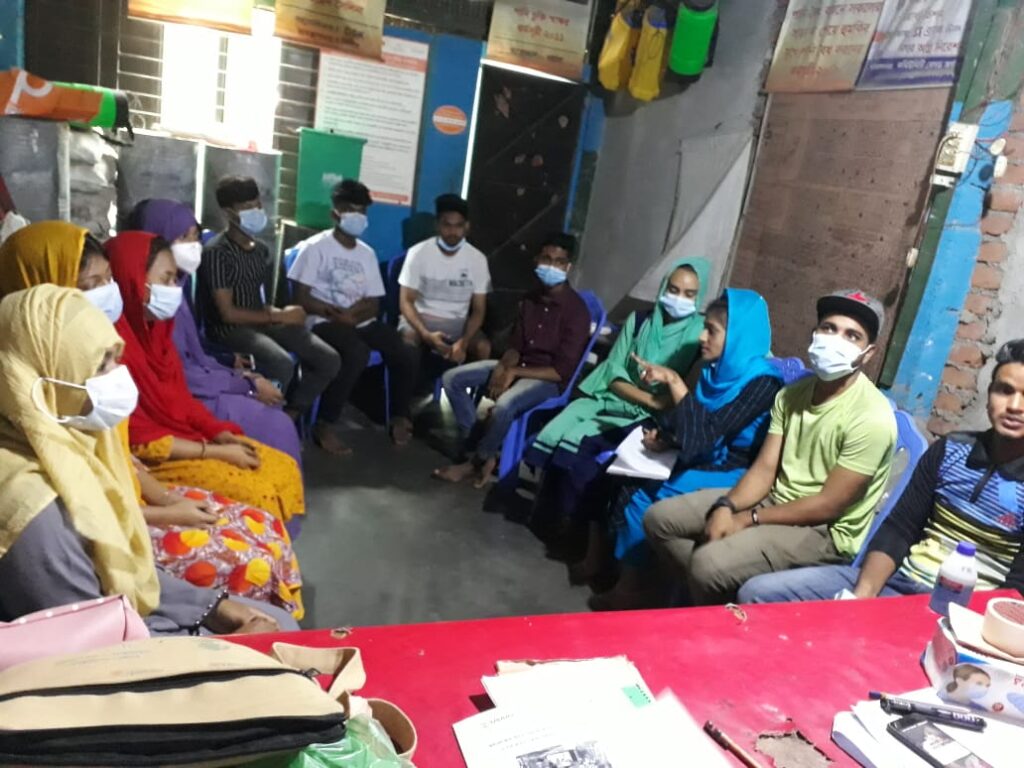
CBO’s Social Mobilization
With the continuous support of the Dhaka CALLING project, Federations have arranged different engaging and influencing Social Mobilisation events at the community level. The main objective of those events was to connect CBO & Federation leaders with the service providers / policymakers. Community-level Social Mobilization events were conducted through Street dramas and “Jaree Gaan” based on Waste management, Dengue, Corona, etc. The project also facilitates media outreach of social mobilization events to draw attention to other community people, service providers / policymakers.
Facilitate development of Community-based Environment Action Plan (CEAP)
The project facilitated the Community Environmental Action Plan (CEAP) development process with the objective of finding out the root causes of community waste management problems and chalk out an action plan to come out of these problems through active participation. The meeting also aimed to address the roles and responsibilities of the community people towards building a healthy environment and inform and sensitize community people towards the process of raising voices over their environmental rights. In targeted slums, four (4) CEAPs have been developed in consultation with the community members, CBOs, local leaders, youth leaders, and others. CEAP shall play an anchor role in all future environmental actions and advocacy.
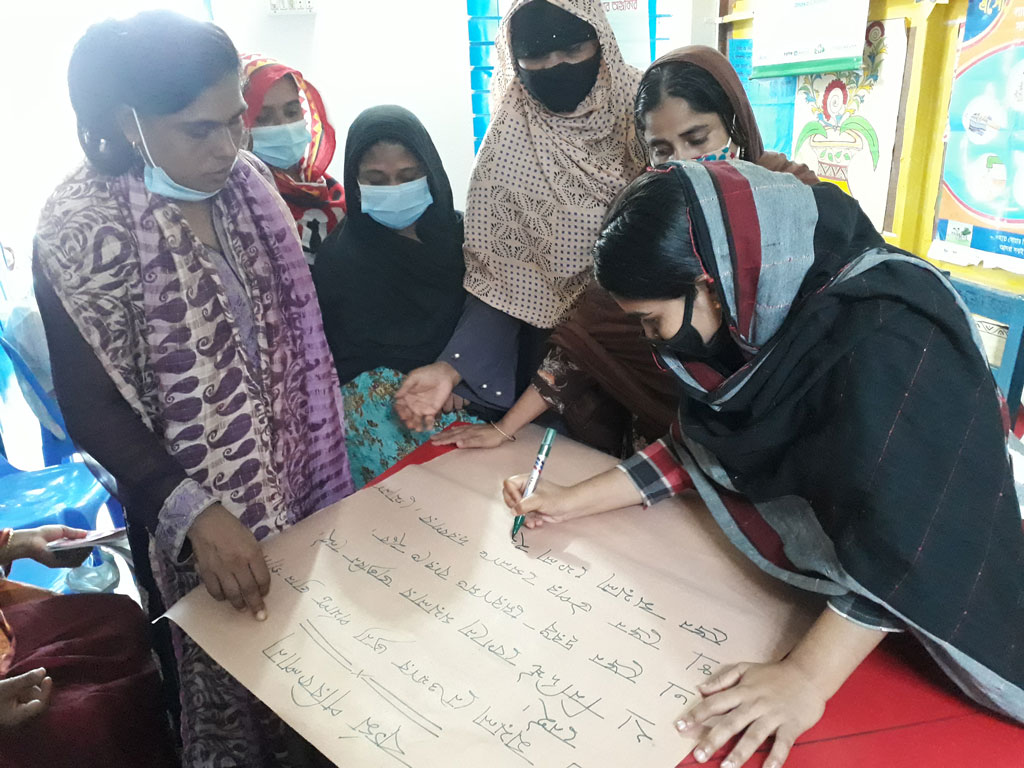
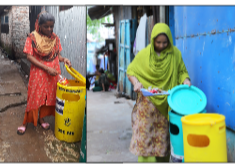
CEAP Methodology Development
To develop the Community Environmental Action Plan (CEAP) methodology a day long consultation session has been conducted by Dhaka CALLING project. The main objective of the consultation session was to collect information based on waste management situation and root causes of the identified problems lead to pollution, community people’s experience as well as prepare an action plan to identify the roles and responsibilities of communities & duty bearers for waste management
Facilitate CLWMS development process
Dhaka CALLING project has facilitated Community-Led- Waste Management System (CLWMS) development process at Mollar Slum and Hazaribag. During the meeting, a large number of community people directly contributed to the action through their active participation. During the meeting, CLWMS methodology was facilitated.
